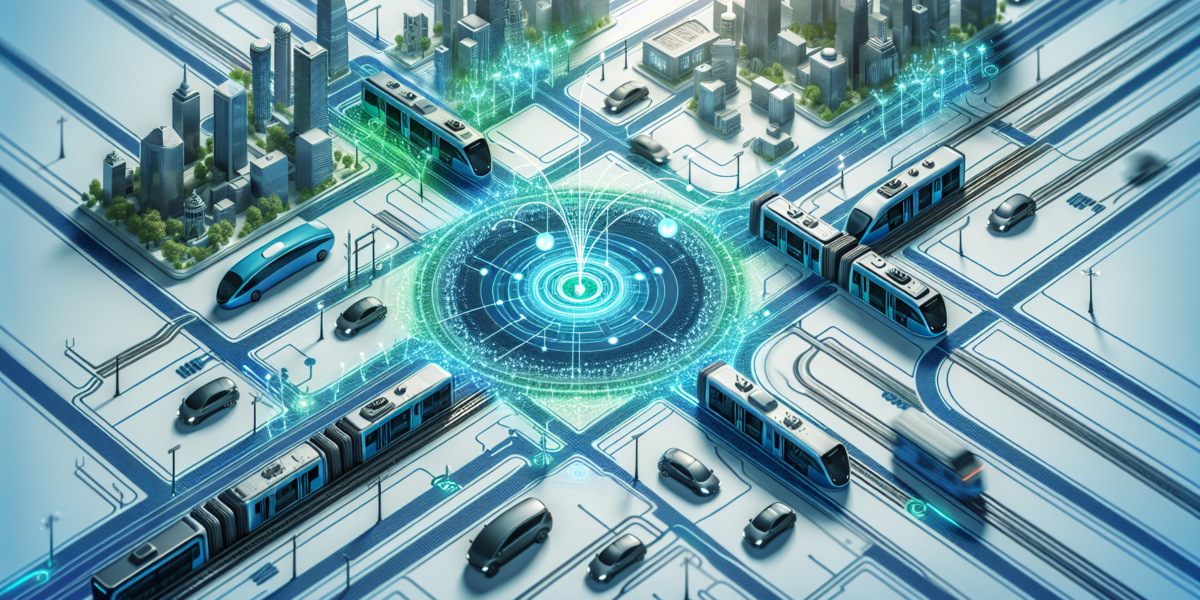Transportation plays a pivotal role in our daily lives, facilitating the movement of people and goods from one place to another. With the advancement of Artificial Intelligence (AI), particularly in the field of route optimization, we are witnessing a transformative shift in how transportation networks operate. From reducing congestion to improving fuel efficiency, AI is revolutionizing the way transportation routes are planned and optimized.
Understanding Transportation Routes Optimization:
Transportation routes optimization involves finding the most efficient paths for vehicles to travel from their origin to their destination. Traditionally, this process relied heavily on manual planning and decision-making, often leading to suboptimal routes and increased travel times. However, with the advent of AI-powered optimization algorithms, this approach has undergone a significant transformation.
AI Algorithms in Action:
AI algorithms, such as machine learning and genetic algorithms, are now being employed to analyze vast amounts of transportation data and identify optimal routes in real-time. These algorithms take into account factors such as traffic patterns, road conditions, weather forecasts, and vehicle characteristics to determine the most efficient paths for vehicles to follow.
Reducing Congestion and Travel Times:
One of the primary benefits of AI in transportation routes optimization is its ability to reduce congestion and minimize travel times. By analyzing real-time traffic data and adjusting routes accordingly, AI algorithms can help alleviate bottlenecks and identify alternative paths to avoid delays. This not only improves the efficiency of transportation networks but also enhances the overall commuting experience for travelers.
Improving Fuel Efficiency and Environmental Impact:
Another significant advantage of AI-powered route optimization is its potential to improve fuel efficiency and reduce emissions. By optimizing routes to minimize distance traveled and avoid idling in traffic, AI algorithms can help vehicles consume less fuel and emit fewer greenhouse gases. This not only saves costs for transportation companies but also contributes to a cleaner and more sustainable environment.
Enhancing Logistics and Supply Chain Management:
In addition to optimizing passenger transportation routes, AI is also revolutionizing logistics and supply chain management. By analyzing factors such as delivery deadlines, vehicle capacities, and inventory levels, AI algorithms can optimize delivery routes to ensure timely and cost-effective distribution of goods. This not only improves efficiency but also enhances customer satisfaction and loyalty.
Challenges and Considerations:
While AI offers immense potential in transportation routes optimization, it is not without its challenges. Privacy concerns surrounding the collection and use of transportation data must be addressed, along with issues related to algorithm bias and fairness. Additionally, ensuring the reliability and accuracy of AI algorithms is essential to maintaining trust and confidence in their recommendations.
As AI technologies continue to evolve, the future of transportation routes optimization looks promising. By leveraging the power of AI algorithms to analyze data, identify patterns, and make real-time decisions, transportation networks can become more efficient, sustainable, and resilient. From reducing congestion to improving fuel efficiency, AI is driving a new era of innovation in transportation routes optimization, shaping the way we move and connect in an increasingly interconnected world.
Team T2S1.

